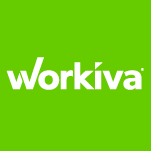Dive Brief:
- The Financial Accounting Standards Board on Wednesday backed away from pursuing a more substantial revamp of its existing accounting standards that would have created a single model to account for software, instead voting to keep the current optionality and to pursue a more incremental, “targeted” approach to updating the rules.
- Under current generally accepted accounting principles, there are two different accounting models for software costs, with the first applied to software that will be sold, leased or marketed while the second applies to internally used software, which, in most cases, includes the development of cloud computing platforms, a FASB spokesperson wrote in an email response to questions Thursday.
- “Based on feedback from stakeholders, including investors, and considering costs and benefits, the board decided to change direction and instead focus on making targeted improvements to the current guidance,” the spokesperson said.
Dive Insight:
The about-face comes nearly two years after the U.S. accounting standards setter started moving down a path toward broader changes to software accounting.
In 2022, the board decided to add a project to its priority technical agenda to modernize accounting for software costs, following the recommendation of its staff that said current standards had led to varied interpretations and left the treatment open to manipulation, CFO Dive previously reported. Indeed, a FASB handout for the June 2022 meeting stated that existing GAAP guidance on the issue was “fragmented.”
The initiative could have been the first significant change to accounting rules for software in more than a quarter century. Accounting guidance for both software that will be sold, leased or marketed and internal-use software was issued in 1985 and 1998, respectively, the spokesperson said. Guidance has remained largely unchanged since then, though there was an update in 2018.
The project had set out to focus on updating accounting treatment related to the measurement and disclosure of costs to internally develop or acquire software, which are currently subject to the guidance in Subtopic 350-40, Intangibles — Goodwill and Other — Internal-Use Software, and Subtopic 985-20, Software — Costs of Software to Be Sold, Leased, or Marketed, for all entities, according to earlier FASB meeting materials.
But lack of interest in bigger change from investors and preparers appeared to cool the board’s interest. Ahead of the board vote on the matter at this week’s meeting, the staff reported that both investors and preparers largely preferred the status quo rather than a single approach.
“While Investors want more transparency into software costs, they are generally not looking for changes in levels of capitalization, particularly those investors who follow software companies,” one staff member told the board. Further, a staff member said that while the single model would address some of the challenges of the current standards, it would come with higher costs.
Before casting their votes in favor of the more incremental change, some of the board members acknowledged their change of heart.
James Kroeker, the FASB vice chair, said he he was originally interested in pursuing the single model, noting that he’d heard from auditors who are challenged with the judgments required by the current rules about which approach to take depending on the type of software, whether it is a SaaS arrangement or software commercialized through licenses.
But he said the feedback from investors who said they’re not looking for changes didn’t constitute a call for taking a fundamental look at accounting for software. At the same time, he acknowledged that there is misalignment between concerns about accounting not reflecting a company’s true value and investors’ disinterest in change.
“There is a growing discussion about the disconnect, particularly in high tech and other spaces, between the accounting balance sheet and the value of an entity,” Kroeker said. “Then when we do detailed outreach with investors they don’t seem to be troubled by that.”
FASB Chair Richard Jones also said the investor feedback swayed him. “Going into this I certainly was looking for a way we could align accounting but it seems like, for software and particularly for where we are with the investment community, it’s a bridge too far at this point in time,” he said.
FASB has previously pulled back from other broader standard overhauls. For example, in 2022 the board dropped a four-year effort to revamp how companies account for goodwill.
Its approach to updates has drawn criticism. For instance, a 2021 letter to the Securities and Exchange Commission from the Alliance of Concerned Investors — an ad hoc group that included former SEC regulators along with academics and business executives — called FASB “glacially slow’ and warned the resulting flawed and outdated accounting standards at the root of the Enron and Worldcom scandals have reemerged.















